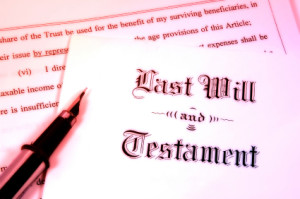Dear Liz: You’ve written that when writing their wills, parents should be careful about leaving unequal distributions to their children. What wasn’t mentioned was that a person could have a “good” child and a “bad” one. The “bad one” has never done a thing for the parent, such as inviting her to the child’s home at Thanksgiving or Christmas, and only visits the parent in the summer when the parent just happens to live at the beach. The “good” one is very attentive and visits the parent even in winter, and so on. What is your thinking in inheritance in this case?
Answer: It’s your money, and there’s no one right way to divide an estate. However, it’s disturbing that your assessment of your children seems to be based solely on how much attention you get.
It’s possible one child acts more selfishly or thoughtlessly than the other. It’s also possible that you are difficult to please, and one child understandably limits the time she spends trying to do so.
 Today’s top story: Should you leave your kids an equal inheritance? Also in the news: The Points Nerd on who we can trust about travel safety, a student loan expert takes her own advice, and how to apply for a credit card when you don’t have a credit score.
Today’s top story: Should you leave your kids an equal inheritance? Also in the news: The Points Nerd on who we can trust about travel safety, a student loan expert takes her own advice, and how to apply for a credit card when you don’t have a credit score.  Today’s top story: Laid off due to Coronavirus? Take these 6 steps. Also in the news: NerdWallet Experts’ tips on handling finances during coronavirus, my experience flying from Mexico to the U.S. during the Coronavirus pandemic, and how to make a will during the Coronavirus lockdown.
Today’s top story: Laid off due to Coronavirus? Take these 6 steps. Also in the news: NerdWallet Experts’ tips on handling finances during coronavirus, my experience flying from Mexico to the U.S. during the Coronavirus pandemic, and how to make a will during the Coronavirus lockdown. Today’s top story: Writing a will? How to stop stalling and get it done. Also in the news: Hidden financing traps in car shopping, how to protect yourself in the Words with Friends data breach, and the big wedding expense nearly half of married couples regret.
Today’s top story: Writing a will? How to stop stalling and get it done. Also in the news: Hidden financing traps in car shopping, how to protect yourself in the Words with Friends data breach, and the big wedding expense nearly half of married couples regret.